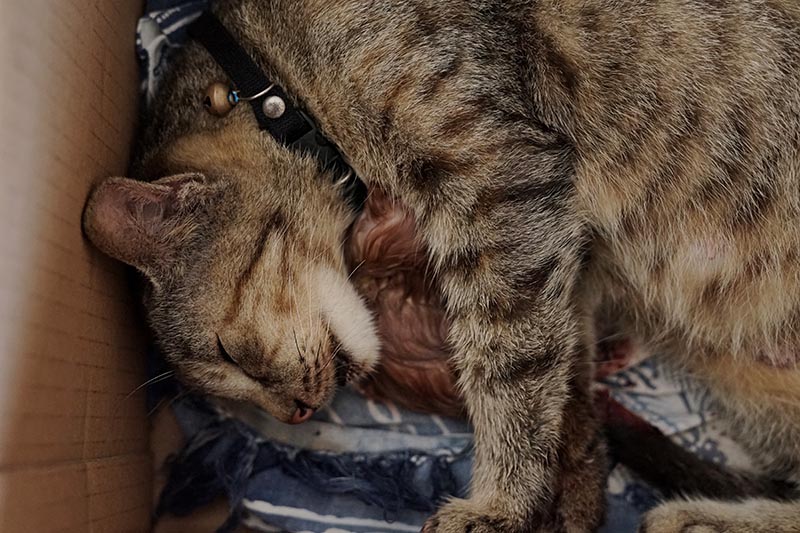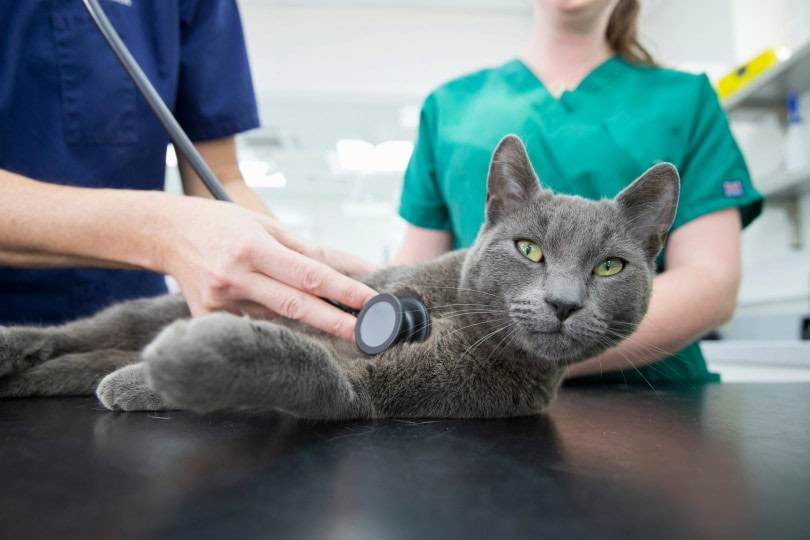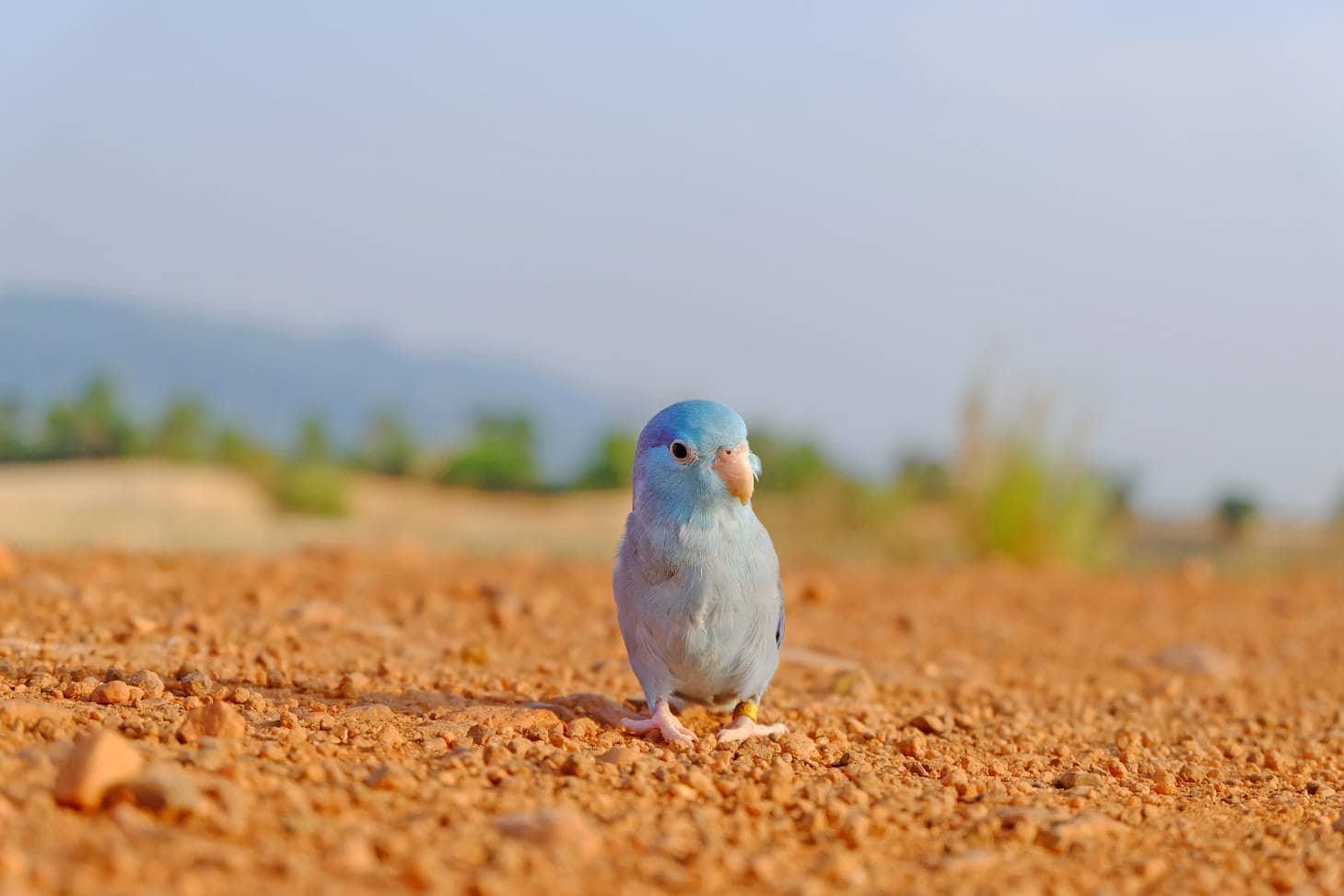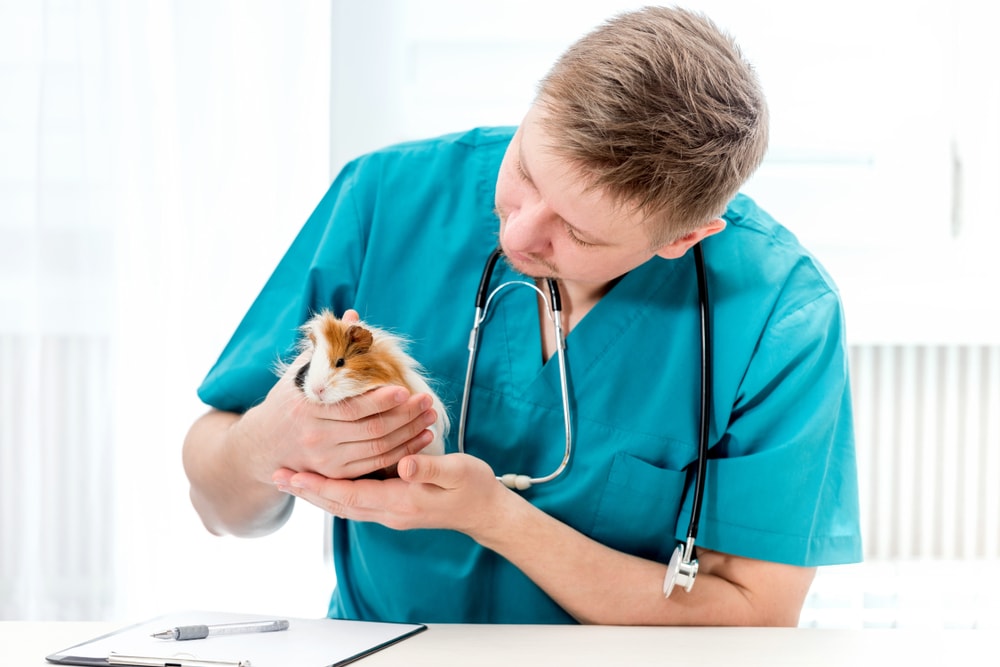VET APPROVED

The information is current and up-to-date in accordance with the latest veterinarian research.
Learn more »Click to Skip Ahead
If you’re a first-time cat parent, and your furry friend is expecting babies of her own, you might not know exactly what to expect. While most cats have perfectly healthy normal kittens and go on about their way, some complications can arise.
If your cat is panting after birth, there could be a few reasons. Why is your cat panting when she usually doesn’t? Is it normal? The answer is yes; panting after giving birth might be normal for your cat. However, panting after giving birth could also indicate a medical problem.
Below, we’ll discuss some of the reasons that your cat might be panting after giving birth, what to do about it if it’s a health issue, and more.

Is My Cat Panting Normal?
Yes, many mother cats pant after giving birth, which is normal. The cat just had kittens, so she’s going to be exhausted. However, there are health issues that could have happened before, during, or even after birth that cause the panting.
If you think your cat’s panting isn’t normal, it’s best to take it in for a checkup with your vet.
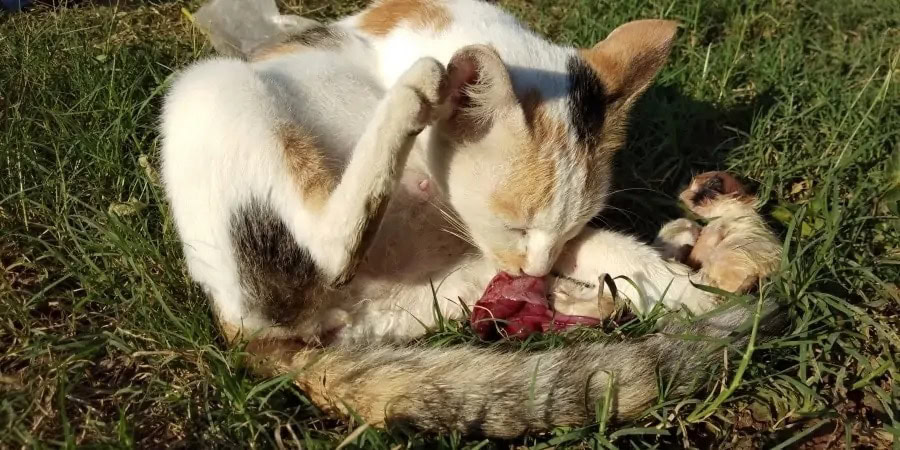

The 5 Possible Reasons Your Cat Is Panting After Having Kittens
There are a few reasons that can account for this panting in your furry friend.
1. Postpartum Healing
After your cat gives birth to her kittens, her uterus will begin to contract, which could be a reason for the panting. The uterus expands during pregnancy to prepare for the birth; postpartum healing begins after the birth. The shrinking of the uterus causes cramps, and she may be panting for this reason.
2. She’s Overheating
Your cat may be overheating, and that is causing the panting. If you think your cat is overheating, it’s best to put her somewhere cooler. However, some mothers notice the temperature change and move to another room where it’s cooler, and they will take their kittens with them. It’s best if you help her with the move since she’s tired and overheated already.
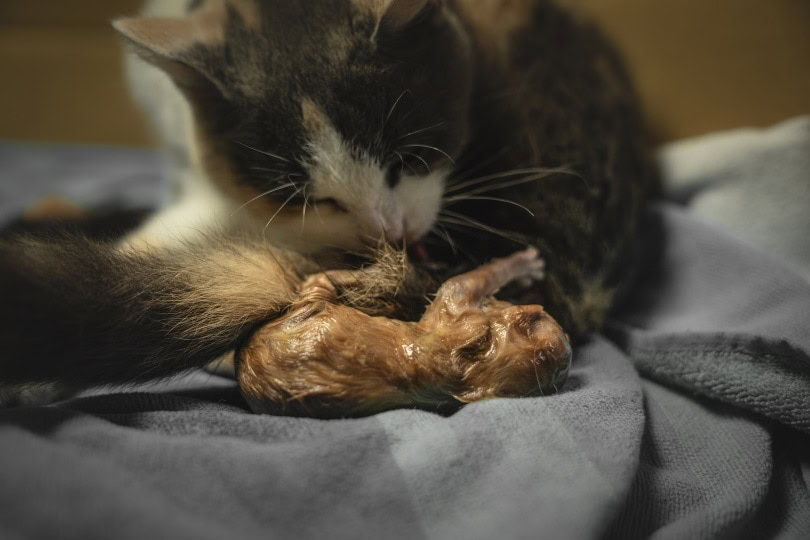
3. Eclampsia (Milk Fever)
Eclampsia, also known as milk fever, is another possibility if your cat is panting hard. If you suspect milk fever in your cat, it’s best to get her to a vet right away for treatment. Eclampsia occurs when a cat is nursing and her calcium levels drop due to the increased demand for milk production. This is a severe, life-threatening condition for your cat and must be treated immediately.
Below, we’ve listed the most common signs of eclampsia in cats.
- Panting
- Restlessness
- Muscle tremors
- No maternal instinct
- Diarrhea
- Vomiting
- Disorientation
- High fever
- Seizures
- Coma
4. She’s Tired
Giving birth isn’t easy for your cat, and she will be tired. This might cause panting, but if the panting continues, you should take your cat to a vet, as the fatigue doesn’t last that long.
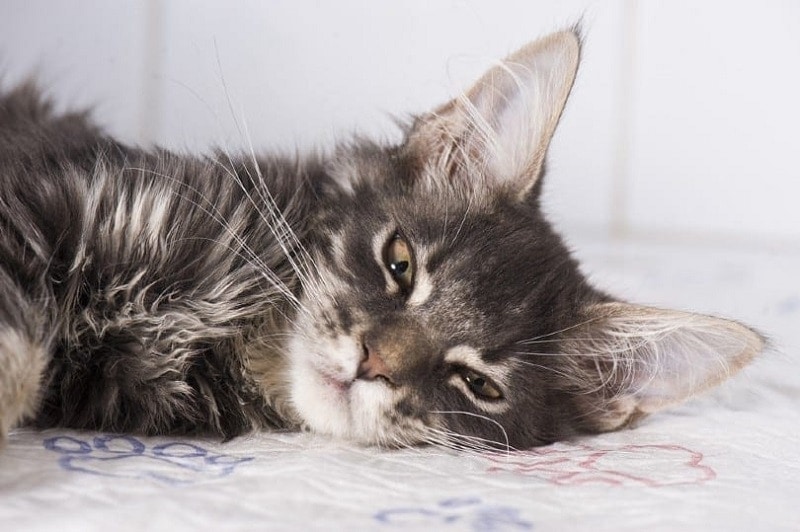
5. She’s Stressed and Anxious
You already know that cats are sensitive animals. Giving birth will leave your cat stressed and anxious for a while, especially right after the kittens are born. An overly anxious cat will pant, and that’s normal. Make sure to put the cat in an area where she’s not stressed or anxious.
It’s best to keep people and other animals away from your cat’s bed since she’ll also get anxious over her kittens.

Should I Contact My Vet?
As we said, there are a few reasons why panting after birth is normal, but when combined with these signs, you must take your cat to the vet’s office.
- Fever
- Heart rate increase
- Lack of milk production
- Vomiting
- Collapse
- Awkward movements
- Unusual vaginal discharge
- Dehydration
- Prolapsed uterus
- Unusually thirsty
- Swollen abdomen
- No or poor appetite

Conclusion
While it’s normal for a cat to pant after birth, if the panting continues or is accompanied by any of the signs we listed above, it’s best to get your cat to a vet for a checkup. In fact, it’s usually a good idea to take the mother cat and her kittens in for a checkup shortly after she has them to ensure both are healthy and in good condition.
Sometimes mother cats need a little help regaining their strength, and that’s where loving pet parents come in.
Featured Image Credit: Hebly Fauzan, Shutterstock
